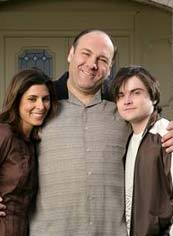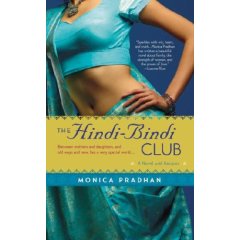 Not having HBO, I am only now plowing through the “The Sopranos“–all of it–on DVD and am still far from the much-dissected ending. But not living under a rock, I am well aware of the diner, onion rings, Journey song, and fade to black. Now the series’ creator, David Chase, is speaking out about the series, especially the ending. He shrugs off any suggestion–which I hadn’t heard before–that the final scene in the diner was reminiscent of The Last Supper, and says that while he expected some fans to be angry by the abrupt ending, he’s surprised at the extent of their obsession with it.
Not having HBO, I am only now plowing through the “The Sopranos“–all of it–on DVD and am still far from the much-dissected ending. But not living under a rock, I am well aware of the diner, onion rings, Journey song, and fade to black. Now the series’ creator, David Chase, is speaking out about the series, especially the ending. He shrugs off any suggestion–which I hadn’t heard before–that the final scene in the diner was reminiscent of The Last Supper, and says that while he expected some fans to be angry by the abrupt ending, he’s surprised at the extent of their obsession with it.
“There was a war going on that week and attempted terror attacks in London. But these people were talking about onion rings,” Chase says in an interview published in the upcoming book “The Sopranos: The Complete Book” and excerpted on EW.com.
Touché. And shame on him. A TV show or movie that engages the audience to the extent “The Sopranos” did is rare enough. Let us enjoy–or angst over–our obsession without pointing out the obvious.
In discussing the ending, however, Chase hits on exactly why a series about a despicably cruel and criminal man resonated so strongly with the audience. Responding to a question about whether anything’s changed for the Soprano family, whether they learned anything or progressed during the show’s eight years, Chase insist that they have improved, albeit not in the dramatic way you’d expect from a TV show:
But look at it: A.J.’s not going to become a citizen-soldier or join the Peace Corps to try to help the world; he’ll probably be a low-level movie producer. But he’s not going to be a killer like his father, is he? Meadow may not become a pediatrician or even a lawyer, but she’s not going to be a housewife-whore like her mother. She’ll learn to operate in the world in a way that Carmela never did. It’s not ideal. It’s not what the parents dreamed of. But it’s better than it was. Tiny, little bits of progress–that’s how it works.
Yes, that is how it works. Incremental, painfully slow evolution, backsliding, moments of doubt, and in the end, if you or your kids end up a little further from where you started, you’re ahead of the curve. Pessimistic? Maybe. I prefer realistic. Let lesser shows portray dramatic lightbulb moments of sudden insight that lead to impulsive but everlasting life changes. We love “The Sorpanos” because when you scratch beneath the surface of mobsters committing cruelties, you’re left with complex characters struggling with the same complex anxieties and fears as the rest of us–finances, kids, relationships, and self-fulfillment. Don’t stop believin’, indeed.


